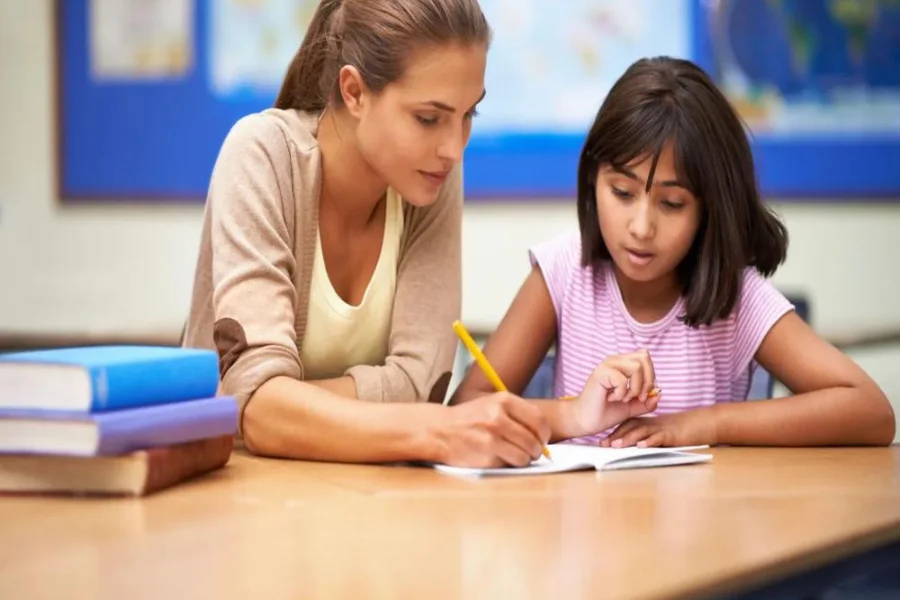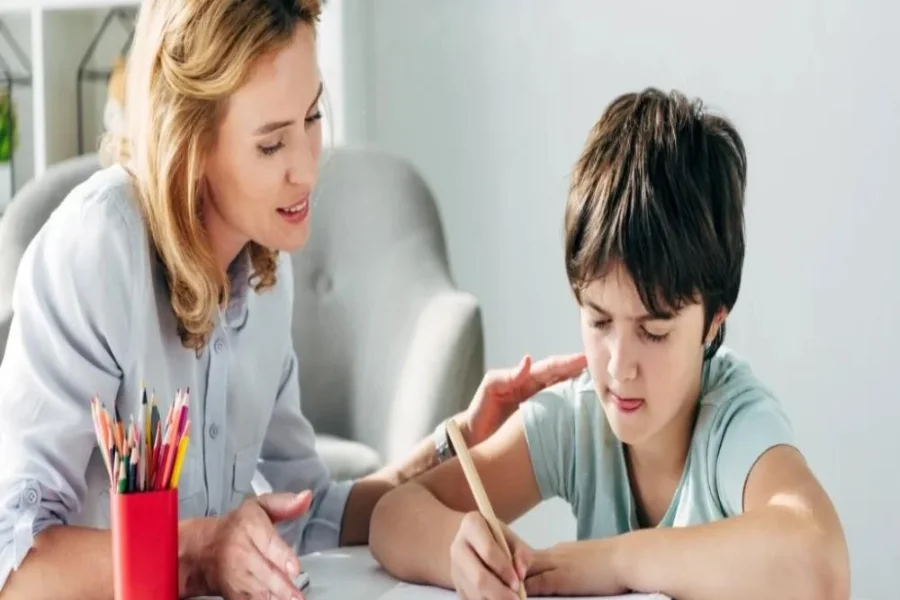
Source: freepik
Individuals wishing to make a spectacular mark in the field of Special Education and dedicated to supporting children with special needs need to look for the right Online Courses on Learning Disabilities in India.
Aspiring candidates wishing to find the right course on learning disabilities can be a turning point for individuals passionate about supporting children with special needs. In India, a range of online courses has made it easier to gain in-depth knowledge and practical skills from the comfort of home. Among these, Vidhyanidhi Education Society (Govt. Regd.) stands out for its well-structured and effective programs.
Renowned for its commitment to quality education and professional excellence, Vidhyanidhi Education Society (Govt. Regd.) offers a course on learning disabilities that equips learners with the tools and strategies to help children overcome challenges and achieve success. With their expert guidance, aspiring educators can confidently work toward their professional goals while making a meaningful impact.
For more details on the LD Course Call/Whatsapp at +919321024137 / +919869866277
To download the brochure of the LD Course, Click Here!

Source: indiadidac
How to Identify Specific Learning Disability?
A Specific Learning Disability (SLD) refers to a neurodevelopmental disorder that hampers certain specific learning skills of the child related to Maths, Language, or Writing skills. This condition occurs when the part of the brain that is responsible for processing information is damaged for any reason leads to poor academic performance with big gaps persistent difficulties in specific areas of academic achievement, despite appropriate educational interventions.
Identifying SLD requires observing key challenges, understanding their impact, and ruling out other possible causes. Below are the criteria for diagnosis, explained with examples:
Persistent Difficulties in Key Areas (At Least Six Months)
Despite receiving targeted support, a child may struggle with:
Reading
Reading words inaccurately or with excessive effort.
Example: A child misreads “cat” as “cap” frequently, even after phonics practice.
Comprehension
Inability to grasp the meaning of text.
Example: A student reads a story but cannot answer questions about the plot.
Spelling
Consistently misspelling common words.
Example: Writing “frend” instead of “friend” repeatedly.
Written Expression
Issues with grammar, punctuation, or structuring sentences.
Example: Writing sentences like “He went to school yesterday” despite corrections.
Math Concepts
Trouble with number operations or reasoning.
Example: Failing to calculate simple sums like 8 + 5 even after repeated practice.
Academic Skills Below Age Expectations
The child’s performance is far below peers, impacting school and daily life.
Example: An 8-year-old unable to read basic sentences, while classmates are reading short stories fluently.
Onset During School-Age Years
Challenges typically appear in school, though they might intensify later when demands increase.
Example: A teenager struggles with algebra concepts, even though simpler math tasks were manageable earlier.
Not Attributable to Other Factors
Difficulties are unrelated to intellectual disability, vision or hearing impairments, or environmental disadvantages.
Example: A child with no vision or hearing issues struggles with reading, ruling out sensory limitations.
Diagnosis of Specific Learning Disability
SLD diagnosis involves:
Observation and Interviews: Teachers and parents note persistent challenges.
School Records: Academic history reveals consistent struggles.
Testing: Neuropsychological tests identify areas of difficulty.
Example: Assessing reading speed and comprehension to confirm dyslexia.
For educators or parents, understanding SLD is crucial. Opting for a Courses on Learning Disabilities from reputed institutes like Vidhyanidhi Education Society can provide insights into effective teaching strategies and early identification methods.
For more details on the LD Course Call/Whatsapp at +919321024137 / +919869866277
To download the brochure of the LD Course, Click Here!

Source: schoolofhealthcare
What are the Kinds of Learning Disabilities?
Understanding the various kinds of learning disabilities is essential for identifying the challenges children may face in their academic journey. Each type affects individuals differently and requires specific approaches for effective support.
Below are some common kinds of learning disabilities:
Auditory Processing Disorder (APD)
Our brain has certain delegated areas that are responsible for certain tasks which also include processing information in the auditory form. Auditory Processing Disorder is a type of hearing loss. This condition affects how the brain processes sound. APD impacts understanding spoken words and determining the source of sounds.
Dyscalculia
A specific learning disability that disrupts mathematical understanding. Affected individuals may have trouble with number concepts, math symbols, telling time, and basic arithmetic operations.
Dysgraphia
This disability hampers writing and fine motor skills. Some of the symptoms that determine dysgraphia include poor handwriting, incorrect formation of letters, and inability to space the letters in the given space.
Dyslexia
Dyslexia is a language disorder. Due to some faulty processing in the brain child fails to recognize letters, is unable to decode words, and forgets the sounds associated with the corresponding letters. Its severity varies but often coexists with other disorders, making literacy tasks challenging.
Language Processing Disorder (LPD)
Language Processing Disorder affects a child’s ability to comprehend spoken or written information. Individuals with LPD have normal intelligence and do not suffer from listening problems but their ability to understand, and express information is affected due to neural dysfunction. A type of auditory processing disorder that specifically affects understanding and producing language.
Non-Verbal Learning Disabilities (NLD)
As we all know one form of information processing is when a child can understand and reciprocate facial expressions, and cues correctly in which no verbal processing of information is involved. So this disorder affects the child’s spatial reasoning, motor skills, and functioning skills.
Visual Perceptual/Visual Motor Deficit
This condition affects the interpretation of visual information and coordination. Challenges may include losing track while reading, distinguishing shapes, and difficulties with tasks requiring fine motor skills, such as cutting or writing.
Related Disorders
While not classified as learning disabilities, the following conditions are often associated with them:
ADHD
Difficulties in focus, impulse control, and hyperactivity often coexist with learning disabilities.
Dyspraxia
Impacts motor coordination and may accompany dyslexia or dyscalculia, affecting language, movement, and speech.
Learning Disabilities hamper the academic journey of the child which has a wider impact on how a child grows up. Special Educators are trained precisely to handle this situation where they provide not just academic support but also emotional support which uplifts the child from the shackles of negativity and self-doubt.
Undergoing a Learning Disabilities Course enables aspirants to understand the intricacies of various learning disabilities, their symptoms, and ways of handling the challenges associated with Learning Disabilities and helping children achieve their true potential.
Achieve expertise with Vidhyanidhi Education Society’s (Govt. Regd.) LD course1 Enroll today!
For more details on the LD Course Call/Whatsapp at +919321024137 / +919869866277
To download the brochure of the LD Course, Click Here!
Courses on Learning Disabilities
FAQs
What is the best treatment for learning disability?
The best treatment combines personalized teaching strategies, therapy, and parental support to address specific needs and enhance skills effectively taught in a robust program at VES.
Which course is best for disability?
Vidhyanidhi Education Society offers one of the best courses for learning disabilities, equipping educators with practical strategies and in-depth knowledge with assured placements.
What is the biggest problem for most students with learning disabilities?
Most students with learning disabilities face challenges in processing information, leading to difficulties in reading, writing, or math comprehension.



